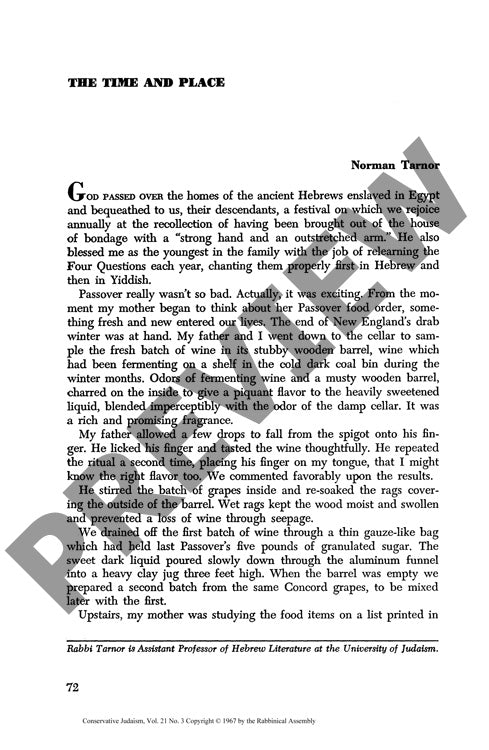The Time and Place
Couldn't load pickup availability
This ethnographic memoir examines the lived experience of Passover observance in a Jewish-American household during the Depression era, exploring the intersection of religious tradition, cultural identity, and childhood memory. Through detailed participant observation and personal narrative, the author documents the comprehensive ritual preparations, family dynamics, and community practices surrounding the festival. The methodology employs autobiographical reflection to analyze the transformation of domestic space and family routines during the pre-Passover period, including traditional food preparation, ritual cleansing, and the procurement of kosher-for-Passover items. Key findings reveal how religious observance functioned as both spiritual practice and cultural renewal, creating distinctive temporal rhythms that distinguished sacred time from ordinary experience. The study demonstrates how traditional Jewish practices maintained cultural continuity while adapting to American urban environments, particularly examining the role of sensory memory in preserving religious identity across generations. The research illuminates the pedagogical function of ritual participation in transmitting cultural knowledge to children, while simultaneously addressing tensions between immigrant traditions and American identity. The author concludes that Passover served as a mechanism for "life renewed," integrating spiritual meaning with material celebration in ways that reinforced both familial bonds and broader Jewish communal identity during a period of economic hardship.

More Information
-
Physical Description
-
Publication Information
Published 1967
ISBN
-
Publication Credits
Norman Tarnor

